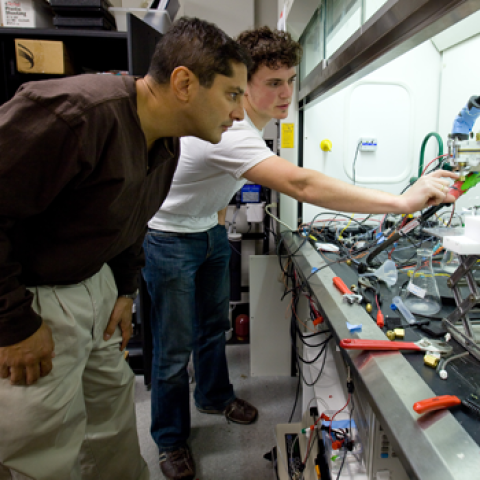Interdisciplinary Initiatives Program Round 1 - 2000
P.J. Utz, Medicine
Juan Santiago, Mechanical Engineering
With the completion of the sequencing of the human genome, attention has turned to the study of the proteins encoded by the genome, a field termed "proteomics". Because there are probably over 100,000 unique proteins and isoforms within mammalian cells, novel high-throughput methods need to be developed that can allow simultaneous analysis of these proteins.
Several labs at Stanford have been at the forefront in developing protein microarrays for such studies. Unfortunately, a number of drawbacks exist to this technology that have led us to explore novel methods, particularly microfluidics-based techniques. The Utz lab (School of Medicine) and the Santiago lab (School of Engineering) have worked closely since our Bio-X grant was funded in 2000 to co-develop proteomics technologies that will allow all assays to be performed entirely in fluid phase. Examples will be presented, including "overspeeding" methods, electrokinetic micromixing, and more recently the use of cleavable fluorophores developed at ACLARA Biosciences for on-chip assays. Efforts are now focused on the study of the autoimmune diseases systemic lupus erythematosus (SLE) and rheumatoid arthritis (RA). We have taken advantage of Bio-X seed funding to set up a multidisciplinary lab in the MERL Building, funded by the newly-created Stanford Proteomics Center that is supported by a $14.6M contract from the National Institutes of Health.



